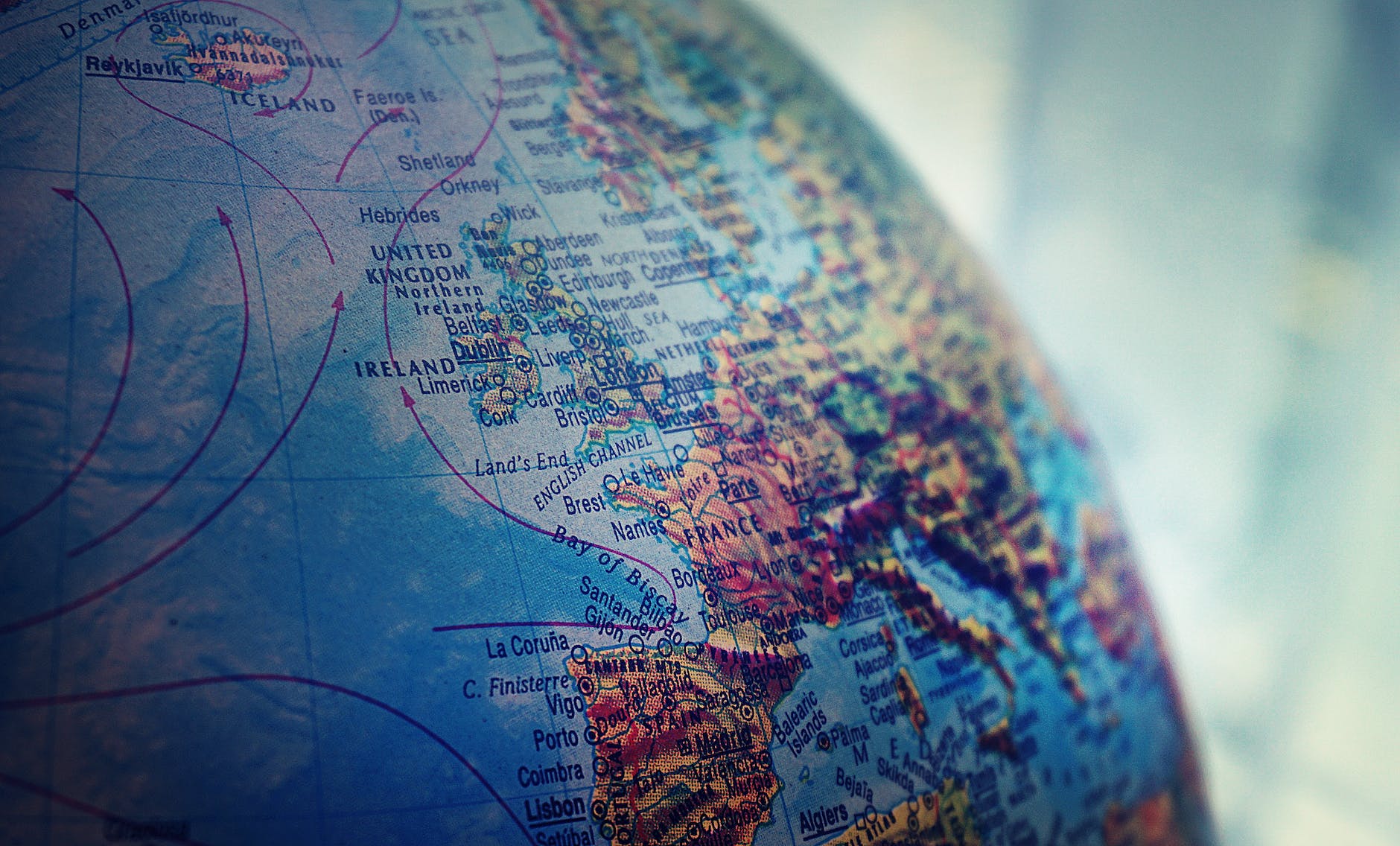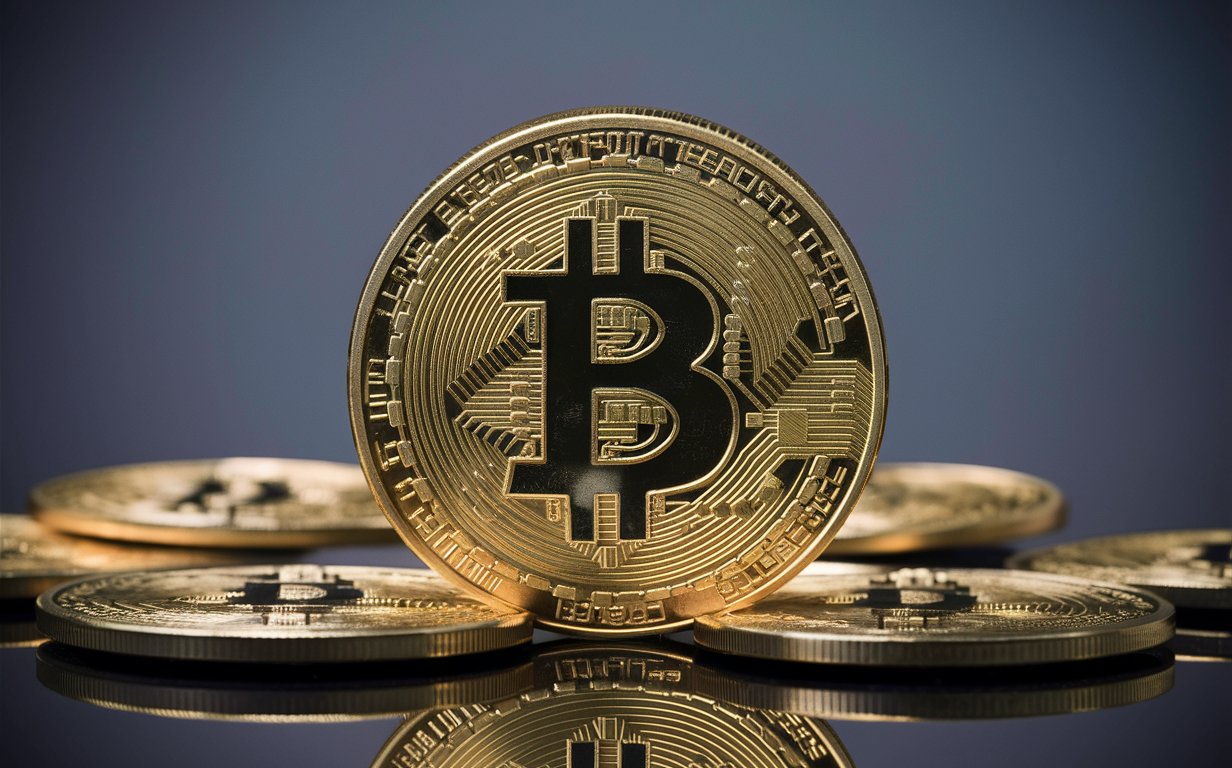Economy
Unlock the Secret to Decoding World Politics and Gain the Upper Hand in a Chaotic World

Table of Contents
Introduction
In today’s complex world, understanding politics can often feel like trying to decipher a cryptic code. With global power dynamics constantly shifting, major players like China, the US, and Russia, and ongoing conflicts like Ukraine and Israel-Palestine making headlines, it’s easy to get lost in the labyrinth of international relations. This op-ed aims to delve deeper into the subject, providing insights, strategies, and analytical tools for those eager to navigate the political chaos effectively.
1: The Ever-Evolving Global Stage
The first step in making sense of today’s politics is to acknowledge the ever-evolving global stage. The world is in a constant state of flux. The rise of China as a superpower, the intricate dance of diplomacy between the US and Russia, and persistent conflicts such as Ukraine and Israel-Palestine all contribute to the complexities of global politics.
This dynamic landscape can be daunting, but it also presents opportunities for those who can adapt and respond to change. The key is to stay informed and actively seek out diverse sources of information. Rather than relying solely on mainstream media, explore a variety of news outlets, both domestic and international, to gain a more comprehensive perspective on global events. This will help you discern the underlying motivations and interests that drive political decisions, ultimately enabling you to make more informed judgments.
2: The Power Struggles Between China and the US
One of the most significant power dynamics in today’s world is the competition between China and the United States. Both countries possess formidable military capabilities and economic influence, making their interactions a focal point of global politics. The article highlights the importance of understanding the nuances of this rivalry and how it impacts the world.
China’s ascendancy has been a defining feature of the 21st century. Its rapid economic growth and technological advancements have positioned it as a formidable player on the global stage. In contrast, the US, though still a superpower, faces challenges in maintaining its dominance. As these two giants contend for influence, it’s crucial to recognize the implications this struggle has on international affairs, from trade disputes to regional conflicts.
3: The Russian Puzzle
Another pivotal player in global politics is Russia, led by President Vladimir Putin. The enigmatic nature of Russian politics often leaves the world puzzled. The annexation of Crimea, involvement in Ukraine, and interference in other countries’ elections have generated substantial debate and concern. To make sense of Russia’s actions, it is essential to understand its historical context and the country’s desire to reclaim its influence on the world stage.
Russia’s actions are not always straightforward, and this ambiguity can be exploited to sow confusion. In response, it’s critical to maintain a vigilant and well-informed perspective. This includes staying up to date on developments in Russia, tracking its geopolitical objectives, and discerning the motivations behind its actions.
4: The Ongoing Ukraine Crisis
Ukraine stands as a testament to the complexities of modern geopolitics. The ongoing conflict in the region is a glaring example of how political interests and historical tensions can lead to strife. Understanding the Ukraine crisis requires a nuanced perspective, as it is a confluence of regional, global, and historical factors.
The conflict in Ukraine has seen the annexation of Crimea by Russia, followed by ongoing skirmishes in Eastern Ukraine. The crisis has drawn in various international actors, including the US and European Union, and has repercussions that extend far beyond Ukraine’s borders. To make sense of this ongoing conflict, it’s crucial to examine the historical context, the role of external actors, and the aspirations of Ukraine’s population.
5: The Enduring Israel-Palestine Conflict
The Israel-Palestine conflict is a long-standing, deeply-rooted issue that continues to captivate the world’s attention. Understanding this conflict is vital for comprehending broader regional dynamics and the influence of external actors.
The Israel-Palestine conflict is characterized by decades of historical grievances, territorial disputes, and competing national identities. To make sense of this enduring conflict, one must appreciate the historical context and the role of international actors in perpetuating or resolving the issue. It is essential to recognize the aspirations and rights of both Israelis and Palestinians to form a comprehensive perspective.
6: The Information Overload
In an age of information overload, it’s easy to become overwhelmed by the sheer volume of news, opinions, and analyses. To make sense of politics, it is imperative to develop discerning information consumption habits. This means being critical of sources, fact-checking, and seeking multiple viewpoints.
The digital era has given rise to the proliferation of fake news, disinformation campaigns, and echo chambers. To navigate this treacherous terrain, individuals must take an active role in verifying the accuracy of information and critically assessing the credibility of sources. This skill is invaluable in distinguishing between legitimate reporting and propaganda.
7: The Role of Diplomacy
Diplomacy remains a cornerstone of international relations. While power dynamics and conflicts are integral to global politics, diplomacy plays a vital role in resolving disputes and maintaining peace. It is essential to recognize the value of diplomacy in addressing complex issues.
Diplomatic negotiations are often conducted behind closed doors, making it challenging for the public to fully comprehend the process. However, understanding the importance of diplomacy and how it functions can help individuals appreciate the efforts made to prevent conflict and seek peaceful solutions. By following diplomatic developments, one can gain insights into the prospects for peace and stability in the world.
8: The Impact of Economic Interests
Economic interests often underpin political decisions. Nations pursue policies that benefit their economies, which can result in both cooperation and competition on the world stage. Recognizing the connection between economics and politics is crucial for making sense of global affairs.
China’s economic growth and expansion, for instance, have reshaped the global economic landscape. The Belt and Road Initiative, which seeks to enhance trade connectivity across Asia, Europe, and Africa, exemplifies the intertwined nature of economic and political interests. Understanding how economic interests drive political actions allows for a more comprehensive analysis of international relations.
9: The Role of Ideology
Ideology plays a significant role in shaping the actions of nations and their leaders. Different ideologies can lead to alliances and conflicts, depending on shared values and beliefs. It is vital to consider the role of ideology in making sense of political developments.
For example, the contrasting ideologies of liberal democracy and authoritarianism have led to tensions between the US and China. The US advocates for democratic values and human rights, while China’s authoritarian regime emphasizes stability and control. Recognizing how these ideologies influence decision-making can shed light on the motivations behind international actions.
10: The Influence of Public Opinion
Public opinion is a powerful force that can shape political decisions and actions. Leaders often take into account the views of their citizens when making foreign policy choices. Understanding the role of public opinion in politics is essential for comprehending the direction a nation takes in international affairs.
In democratic societies, public opinion can influence government policies, leading to shifts in foreign relations and alliances. For instance, public sentiment can impact decisions on military interventions, trade agreements, and humanitarian aid. Analyzing the inter
play between public opinion and politics allows individuals to gauge the responsiveness of their governments to their citizens’ voices.
11: The Importance of Historical Context
History serves as a rich tapestry that underpins the world’s political landscape. Past events, conflicts, and alliances often have a lasting impact on present-day politics. To make sense of the world’s complexities, it is imperative to delve into the historical context.
For example, understanding the historical rivalries and alliances in Europe provides valuable insights into contemporary geopolitics. The legacy of the two World Wars and the Cold War continues to influence the relationships between nations. By examining the historical roots of global conflicts and collaborations, individuals can better grasp the motives and strategies at play in today’s politics.
12: The Role of Education and Awareness
Education and awareness are powerful tools for deciphering the intricacies of politics in a world of confusion. A well-informed and engaged citizenry is essential for holding governments accountable and promoting positive change. To become adept at making sense of politics, it is crucial to invest in one’s education and remain aware of current events.
In a rapidly changing world, staying informed is an ongoing process. This includes reading reputable news sources, following international affairs, and engaging in critical thinking. Additionally, participating in civic activities, such as voting and advocating for causes, can have a significant impact on shaping political decisions at the local and national levels.
Conclusion
In a world marked by shifting power dynamics, ongoing conflicts, and the complexities of international relations, making sense of politics is a formidable challenge. However, it is not an insurmountable one. By recognizing the ever-evolving global stage, understanding the power struggles between China and the US, and appreciating the enigmatic nature of Russian politics, individuals can gain a more comprehensive perspective on the world’s political landscape.
Moreover, by delving into the intricacies of ongoing conflicts like Ukraine and the Israel-Palestine issue, and by developing discerning information consumption habits, one can navigate the political maze effectively. Understanding the role of diplomacy, economic interests, ideology, public opinion, historical context, and the significance of education and awareness can further enhance one’s ability to make sense of politics in a world of confusion.
The key to navigating this complex world lies in taking an active role in understanding, analyzing, and engaging with political developments. By doing so, individuals can contribute to a more informed and just global society. In a world where confusion and uncertainty may prevail, knowledge and awareness are the beacons that light the way toward a brighter future.
Crypto
Bitcoin Rebounds from Slump Triggered by Iran’s Attack on Israel: Analyzing Market Sentiment and Investor Reactions

Table of Contents
Introduction
On April 13, 2024, Bitcoin experienced a significant price drop following the escalation of tensions between Iran and Israel. The attack on Israel by Iran led to a sharp decline in the price of Bitcoin, causing concern among investors and market analysts. However, the cryptocurrency market has shown resilience, with Bitcoin rebounding from the slump, indicating a potential recovery in the market. In this blog article, we will analyze the impact of the geopolitical event on Bitcoin’s price, market sentiment, and investor reactions.

Impact on Bitcoin Price
The attack on Israel by Iran led to a significant drop in the price of Bitcoin, with the cryptocurrency experiencing a sharp decline in its value. According to CoinMarketCap, the price of Bitcoin dropped from $25,987.73 to $24,427.20 within a few hours of the news. This decline can be attributed to the uncertainty and fear among investors, as geopolitical events can have a significant impact on the global economy and financial markets.
Market Sentiment
The sudden drop in Bitcoin’s price led to a wave of panic among investors, causing a shift in market sentiment. According to data from CoinMarketCap, the market sentiment for Bitcoin shifted from “Neutral” to “Negative” within hours of the news. This change in sentiment can be attributed to the fear of potential economic instability caused by the geopolitical event.
Geopolitical Events and Bitcoin
Geopolitical events have a significant impact on the cryptocurrency market, particularly on the price of Bitcoin. In recent years, we have seen how events such as the Russia-Ukraine conflict, the COVID-19 pandemic, and the ongoing US-China trade war have affected the cryptocurrency market. The attack on Israel by Iran is just another example of how geopolitical events can cause volatility in the market.
Investor Reactions
The sudden drop in Bitcoin’s price led to a wave of panic among investors, causing some to sell their holdings in a bid to minimize their losses. However, other investors saw this as an opportunity to buy Bitcoin at a lower price, believing that the cryptocurrency would recover in the long run. This divergence in investor reactions highlights the inherent volatility of the cryptocurrency market and the importance of understanding market sentiment and geopolitical events.
Recovery and Future Outlook
Despite the initial decline, Bitcoin has shown resilience and has started to recover from the slump. As of the time of writing, the price of Bitcoin has rebounded to $25,537.95, indicating a potential recovery in the market. However, the long-term outlook for Bitcoin remains uncertain, as the cryptocurrency market is heavily influenced by geopolitical events and market sentiment.
Conclusion
The attack on Israel by Iran led to a significant drop in the price of Bitcoin, causing panic among investors and uncertainty in the market. However, the cryptocurrency has shown resilience and has started to recover from the slump. As we move forward, it is essential to monitor geopolitical events and market sentiment to understand the potential impact on the cryptocurrency market.
China
Navigating the Economic Transformation: China’s Future Depends on Microeconomic Policies

Introduction
China’s economic growth has been a significant global phenomenon, with its rapid expansion driving global trade and shaping the global economy. However, as China enters a new phase of its economic development, it faces challenges that require a shift in focus from macroeconomic stimulus to microeconomic policies. This article explores the importance of microeconomic policies in China’s future economic growth and the implications for businesses and markets.

I. The Limitations of Macroeconomic Stimulus
- Temporary Boost: Macroeconomic stimulus, such as government spending and monetary policy, can provide a temporary boost to the economy. However, it does not address the underlying structural issues that hinder long-term growth.
- Amplifying Economic Shortcomings: Macroeconomic stimulus can exacerbate economic imbalances and inefficiencies, leading to a more significant correction in the future.
II. The Importance of Microeconomic Policies
- Structural Reforms: Microeconomic policies focus on structural reforms that address the root causes of economic challenges. These reforms can include labor market reforms, regulatory changes, and infrastructure investments.
- Encouraging Business Transformation: Microeconomic policies can create an environment that encourages businesses to transform and adapt to changing market conditions. This can lead to increased productivity, innovation, and competitiveness.
III. The Role of Businesses in China’s Economic Transformation
- Adapting to Market Changes: As China’s economy evolves, businesses must adapt to new market conditions and consumer preferences. This may involve shifting from traditional industries to more innovative and technology-driven sectors.
- Embracing Innovation: To prosper in the new economic environment, businesses must embrace innovation and technological advancements. This can include investing in research and development, adopting new technologies, and fostering a culture of innovation.
IV. Implications for Markets and Investors
- Changing Market Dynamics: As China’s economic focus shifts from macroeconomic stimulus to microeconomic policies, market dynamics will change. Investors should be prepared for a more volatile and uncertain market environment.
- Opportunities for Investors: The shift to microeconomic policies presents opportunities for investors in sectors that benefit from structural reforms and business transformation. These may include technology, healthcare, and environmental sectors.
Conclusion
China’s future economic growth depends on its ability to navigate the complex transition from macroeconomic stimulus to microeconomic policies. This requires a focused effort on structural reforms, business transformation, and a shift towards innovation and technology. As China embarks on this transformation, businesses and investors must adapt to the changing market conditions and seize the opportunities presented by the new economic environment.
Economy
Understanding the Latest Inflation Figures: Causes, Consequences, and the Fed’s Response

Introduction
Inflation, the rate at which the general level of prices for goods and services is rising, has been a topic of concern for economists and policymakers alike. Recently, the US inflation rate has risen to 2.5%, according to the Federal Reserve’s preferred measure, the Personal Consumption Expenditures (PCE) index. This figure is in line with economists’ expectations but remains above the central bank’s target of 2%. In this blog article, we will delve into the causes of this inflation rise, its impact on the economy, the Federal Reserve’s response, and the potential future implications.
Causes of Inflation:
- Supply Chain Disruptions: The COVID-19 pandemic has caused significant disruptions in global supply chains, leading to increased demand for goods and services.
- Fiscal Policy: Government spending and tax policies can influence inflation by increasing the demand for goods and services, leading to higher prices.
- Monetary Policy: The Federal Reserve’s actions, such as adjusting interest rates, can impact inflation by influencing the supply of money and credit in the economy.
Impact of Inflation on the Economy:
- Consumer Prices: Inflation directly affects the prices consumers pay for goods and services, potentially reducing their purchasing power.
- Interest Rates: Central banks, like the Federal Reserve, may adjust interest rates to control inflation, which can impact borrowing costs and economic growth.
- Economic Stability: High and persistent inflation can lead to economic instability, as businesses and consumers struggle to predict future prices.
Fed’s Response to Inflation:
- Interest Rate Adjustments: The Federal Reserve has the ability to adjust interest rates to control inflation, which can impact borrowing costs and economic growth.
- Communication: The Fed communicates its monetary policy decisions and future expectations to the public, which can influence market expectations and economic behavior.
- Inflation Targets: The Fed has set a target inflation rate of 2%, which it aims to maintain over the long term.
Future Implications of Inflation:
- Monetary Policy: The Fed’s response to inflation will depend on its assessment of the current economic situation and future expectations.
- Economic Growth: High and persistent inflation can negatively impact economic growth, as businesses and consumers may reduce spending and investment due to uncertainty.
- Policy Coordination: Central banks, governments, and international organizations may need to coordinate their policies to address inflation and promote economic stability.
Conclusion
The recent rise in US inflation to 2.5% is a cause for concern, as it remains above the Federal Reserve’s target. Understanding the causes of this inflation, its impact on the economy, and the Fed’s response is crucial for policymakers and investors alike. By addressing these issues, we can work towards maintaining economic stability and promoting sustainable growth.
-

 Featured3 years ago
Featured3 years agoThe Right-Wing Politics in United States & The Capitol Hill Mayhem
-

 Elections 20242 months ago
Elections 20242 months agoAnalyzing Trump’s Super Tuesday Triumph and Nikki Haley’s Strategic Moves
-

 News2 years ago
News2 years agoPrioritizing health & education most effective way to improve socio-economic status: President
-

 China3 years ago
China3 years agoCoronavirus Pandemic and Global Response
-

 Canada3 years ago
Canada3 years agoSocio-Economic Implications of Canadian Border Closure With U.S
-

 Conflict3 years ago
Conflict3 years agoKashmir Lockdown, UNGA & Thereafter
-

 Democracy3 years ago
Democracy3 years agoMissing You! SPSC
-

 Democracy3 years ago
Democracy3 years agoPresident Dr Arif Alvi Confers Civil Awards on Independence Day
























